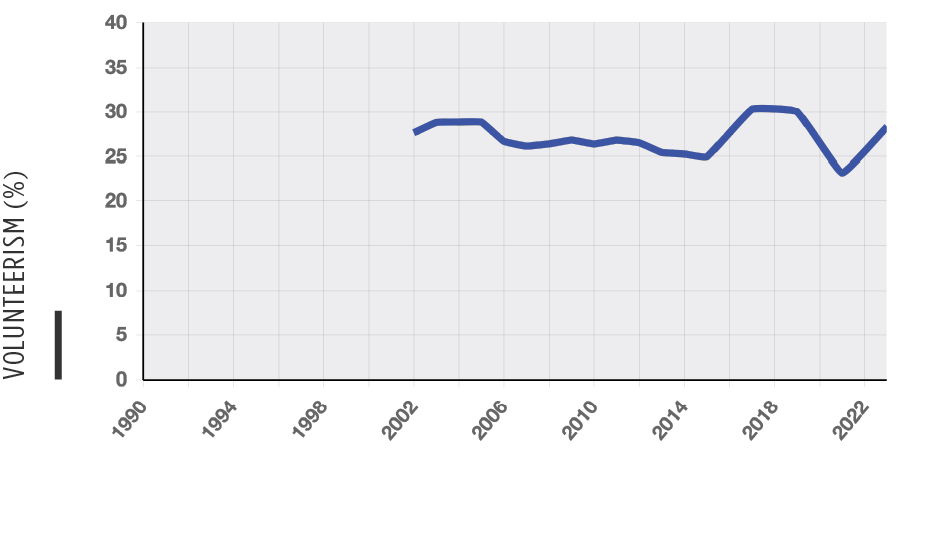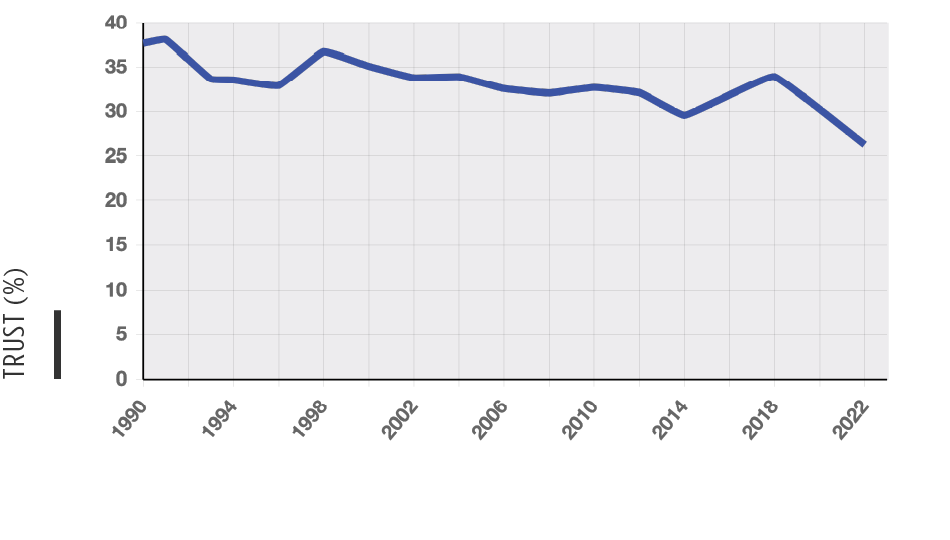Social Capital
Social capital refers to the strength and usefulness of our relationships with other people, including family, friends, neighbors, coworkers, and institutions (such as schools, churches, and civic organizations). Our sense of connectedness and the degree to which we cooperate with others, hold shared values and purposes, and trust one another are all part of social capital. While we often see and respect people as individuals, almost everything we do is accomplished through groups and therefore depends on our social relations. Throughout its history, Americans have been recognized for our active participation in civic groups, taking action on public affairs, such as town hall meetings to marches, and volunteering for our favored causes. This makes social capital particularly relevant in the United States.
Summary of Results
With the exception of a brief decline during the COVID pandemic, which precluded many forms of in-person activity, volunteerism has held relatively steady or increased slightly over the past decade. (Unfortunately, we do not have consistent trend data going back to 1990.) However, we show declining trust in other people, mirroring international trends. On both measures—volunteerism and trust in other people—we are above the average of other higher-income countries, but far from the top tier.

